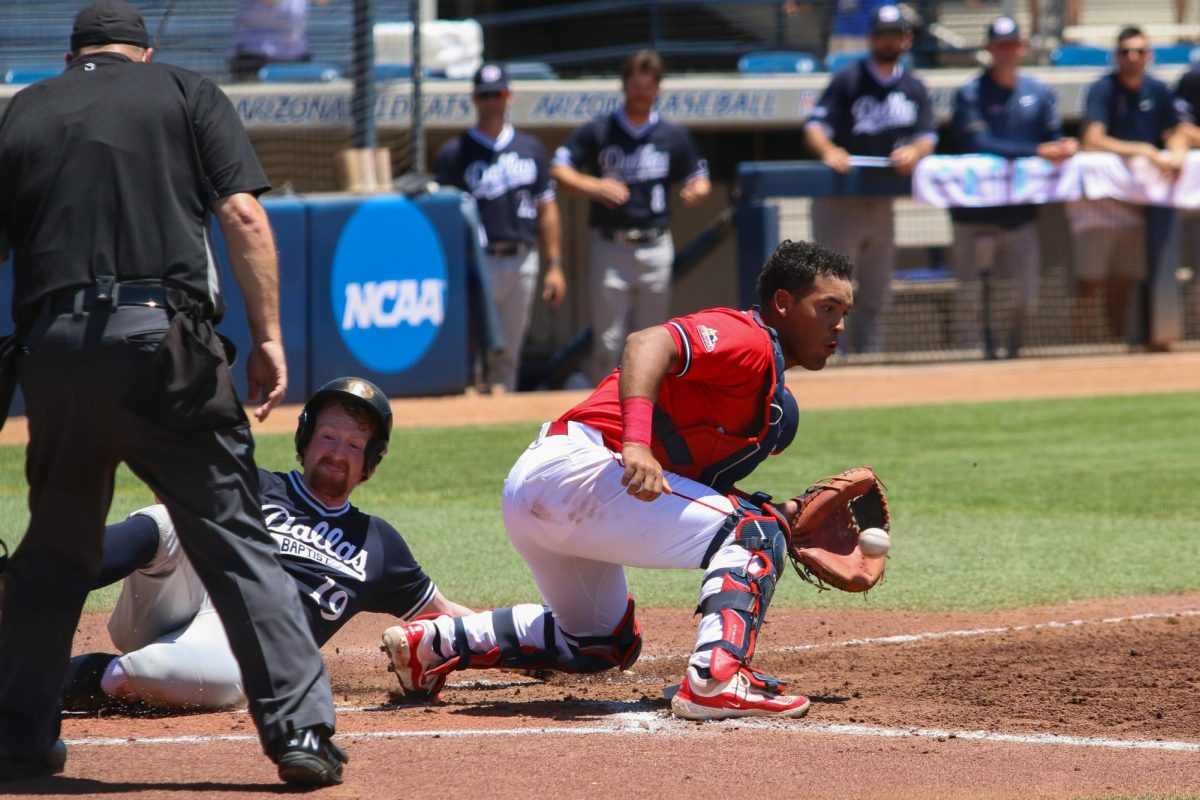Senate approves change to funding bylaw
The ASUA Senate approved a bylaw change last night that allows the senate to alter club funding amounts allocated by the Appropriations Board if it feels the amount is unsuitable.
The bylaw change was initially proposed in last week’s senate meeting by Sen. Steven Gerner, a political science senior, but was tabled for amendments.
According to the change, if the senate agrees an amount allocated by the Appropriations Board for a club is inappropriate, the senate must first send it back to the board for reconsideration.
If the club is under a time constraint and needs funding immediately, the senate can change the amount without sending it back to the Appropriations Board.
If the senate feels the amount is still inappropriate the following week, it reserves the right to change the amount.
The bylaw also states the senate may divide requests on the consent agenda and vote on each individually.
“”On some of the larger requests, I think it’s efficient to have them (the Appropriations Board) re-look some of the requests,”” said Sen. Samantha Kerr, a pre-health education senior.
Two ASA members head to D.C. summit
The senate also approved $1,521 in funding to send two Arizona Students’ Association members to the Washington, D.C. Summit Program that takes place March 9-14.
ASA is already funding one UA student to go, but wants to send two more so the UA is more heavily represented.
ASA students fromArizona State University, Northern Arizona University and the UA will travel to Washington, D.C. to lobby and build coalitions with Congress as well as with other student associations.
“”We are looking to network with other state associations as well as aggressively lobby at the federal level,”” said ASA Director Chris Nagata, a physiology freshman.
Currently, the UA is sending the least amount of students to Washington, D.C. for the program and while students will be lobbying for Arizona as a whole, it is important for UA to be well-represented, Nagata said.
The $1,521 will pay for registration, as well as hotel and airfare for the two extra students.
“”This will also be good training for ASA members that will naturally be passed down to future ASA members,”” Nagata said.
UA club fund request fails to pass
The senate failed to approve a request by Gerner for $2,400 in funding for the Club Central Program, which is aimed at helping UA clubs get more campus support.
Gerner asked for $1,600 to construct bulk storage spaces so clubs can store items like banners on UA property that can be reused the following years.
He also asked for $1,300 for student organization equipment such as projectors, speakers and tables.
Gerner said this project and these funds would help relieve ASUA of heavy amounts of club funding requests in the future.
“”As a senate we should support each other in our projects,”” Kerr said. “”This can be the senate’s gift to the university. It’s a legacy we can leave for clubs that senates can build upon for years to come.””
Sen. Brian Seastone offered to fund $500 for the project, which lowered the original request of $2,900 to $2,400.
“”I don’t know how I can show my great appreciation to Seastone for offering to help us with this project,”” Gerner said.
Conway suggested and urged Gerner to ask for less money next week in hopes the senate would then help fund the project.
Construction for this project will take place over the summer and is set to open in August, Gerner said.
Senate approves payment for safety whistles
The senate approved $1,500 to go toward the backfill payment of over 9,000 safety whistle key-chains distributed to UA students.
SafeRide already funded $750 for the whistles and the remainder, approximately $4,500, was funded by Seastone’s department.
“”Campus security is of the utmost importance,”” said Sen. Bryan Hill, an economics senior. “”I think we should fund as much as possible.””
The whistle key-chains have already been purchased and handed out during orientations, but Seastone said the University of Arizona Police Department needed help paying back its purchase.
Seastone requested around $1,000 last semester for the whistle key-chains but was denied.








